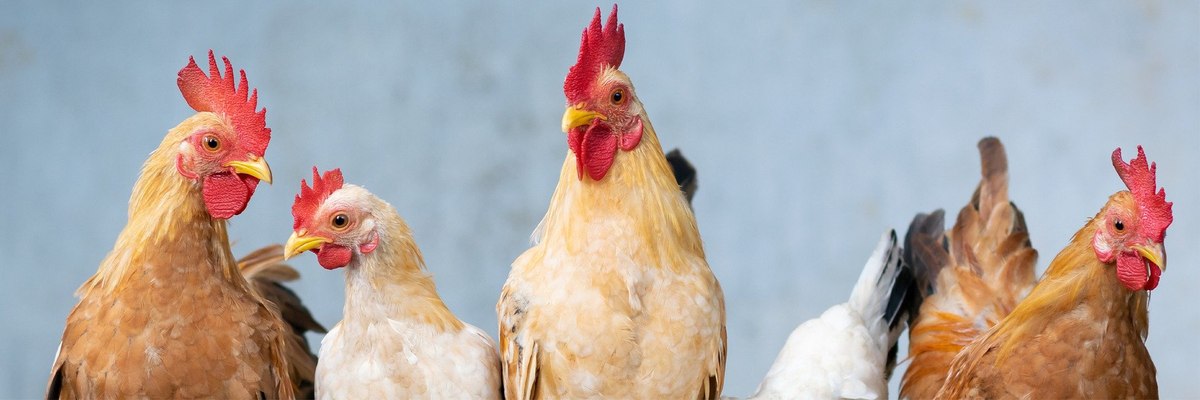There’s ‘trench warfare’ going on at the heart of the government (according to a Conservative MP) over that most basic of issues: our food. Inevitably it has huge implications too for the future of farming in this country. And for the environment. It’s all about how much we are prepared to let the Americans sell us their food. So what sort of food do we want? And how should we view the future of British agriculture?
At the centre of it all is Boris Johnson’s desperate need to deliver on his Brexit promises and transform the country into ‘Global Britain’ by signing a whole load of new trade deals around the world of the sort we were prevented from doing on our own when we still belonged to the European Union. Talks are already underway with Japan, Australia, New Zealand and many other countries. But the big one is the United States. Although the potential economic benefit of a new trade deal with the US is small compared with the scale of our current trade with the EU a US trade deal would be symbolic of Britain’s new freedom to negotiate its own trading relations around the world.
Washington is equally keen to sign a deal. And it wants one by the autumn - not least because President Trump sees it as being to his advantage in November’s presidential election. What’s absolutely clear, though, is that there won’t be any deal unless Britain agrees to open up its markets to American food. From the American point of view Brexit is a great opportunity at last to sell its agricultural products to British consumers. They’ve been effectively barred from doing so because the high tariff walls the EU’s common agricultural policy put up against them. Should President Trump succeed in opening up the British market to American farmers, he reckons they will reward him in November.
The issue, then, is not whether including American agriculture will be necessary for a deal, but on what terms. Or whether, if the terms are too high, Britain should simply forget the idea of doing a new trade deal with the US altogether and think afresh about its own farming future.
To some in Britain there is simply no dilemma here because in their eyes a deal that allowed British companies to export more to America and American farmers, in return, to sell their food here would provide Britain with a double bonus. That’s because they see cheaper American food as being a boon for the British consumer. For too long, they say, British consumers have had to pay more for their food than they needed to simply because the EU imposed such high tariffs. Now, as a result of Brexit, British consumers can be spared these higher costs. At the very least, they say, British consumers should have the choice: that’s what free markets are all about. In their eyes it’s 1846 all over again: the repeal of the Corn Laws back then allowed cheaper foreign food into the country, thus reducing the cost of living. It was all done in the teeth of opposition from British farmers (and rich landowners) and it was done by a Conservative prime minister. Bring it on again, they say.
To which their opponents reply: ‘The price of food is only half the story – in fact not even that.’ They point out that spending on food is a small and declining proportion of overall family spending so the lower prices of American imports would not amount to much benefit. But much more important anyway, they say, is the issue of standards. American food is cheaper because American agriculture imposes lower standards in a whole range of areas than we permit here.
On food safety, for example, American farmers use herbicides banned in Europe because of links to cancer. Similarly, the Americans want to sell us beef from cattle treated with steroid hormone drugs that allow animals to grow more quickly on less feed, a practice that’s been banned in the EU since 1989 on account of carcinogenic risk. Or there’s the famous American chlorinated chicken, which is washed in acid to kill bacteria caused by lower standards of hygiene in the rearing of the birds. Growth-promoting antibiotics, banned here and in the EU, are routinely used throughout American farming.
Lower standards in the production of cheaper American food pose other health risks too. Much of the cheaper food intensively produced in the US has lower nutritional value and this contributes to the obesity epidemic in the United States: the more people eat cheaper, less nourishing food, the more they are likely to become overweight. So the importing of more cheap American food would fuel the growing obesity crisis here too, critics say.
Then there is the issue of animal welfare where, again, standards in America are far lower than they are here and in the rest of Europe. All that matters is the bottom line. The imperative of cutting costs has turned many American ‘farms’ into vast production lines of meat where the very notion that it comes from living, sentient creatures is forgotten.
Nor are food standards the only concern. What would happen to British farmers and, indeed, to the countryside if Britain were flooded with cheaper imports from America and elsewhere? British agriculture already feels under the cosh. Ask any dairy farmer how much profit he makes from selling milk to supermarkets and he’ll answer: ‘what profit?’ The same is true of much of the rest of British agriculture. As a result old-fashioned family farms are disappearing before our eyes. Even the larger conglomerates would be under severe threat from cheaper foreign competition if it was allowed a foot in the door.
This is the background to the ‘trench warfare’ said to be being waged in Cabinet between Liz Truss, the international trade secretary who’s trying to negotiate the new trade deal with Washington, and George Eustice, the environment secretary responsible for British farming and himself from farming stock. Of course the government denies there is an almighty row going on and Ms Truss tried to prove it this week by making a move that on the surface would appear to be highly concessionary to British farmers.
On Monday she announced the setting up of a new independent Trade and Agriculture Commission to advise the government on all these matters. It has long been advocated by the National Farmers Union, who welcomed it. Ms Truss said: ‘I wholeheartedly agree that any trade deal the UK strikes must be fair and reciprocal to our farmers, and must not compromise on our high standards of food safety and animal welfare.’
This ‘concession’ has not gone unchallenged. Matt Kilcoyne of the free-market Adam Smith Institute said: ‘This commission is a kick in the teeth for consumers and it is a conspiracy by a powerful few against the public good.’
Others, however, suspect that neither the setting up of the commission nor Ms Truss’s assurances mean that those who oppose the likely compromises on food and farming to get a trade deal with America can declare victory and celebrate. Politicians have been known to say one thing and do another (perish the thought) and many people, including backbench Tory MPs, still fear both food standards and British farmers are at risk of being sold out. It’s worth pointing out that Ms Truss went on to say that the commission’s recommendations should “be advisory only”.
In short, it seems there’s everything still to play for.
The underlying question is what future for food and farming do we want? At the extreme end of those who see the future in terms of free trade and price competition are those who say we shouldn’t even bother to compete. We should simply accept that other countries can produce food more cheaply than we’ll ever be able to do, so we should just buy their food and rewild our countryside. But the problems with that are obvious.
We would become wholly dependent for our food on countries with lower standards of food safety and animal welfare and whose intensive production techniques threaten global warming. Much of the beef we already import from Brazil comes from animals reared on farms created by destroying the Amazonian rain forest. In addition such dependency would raise issues of food security, in the sense that we would be vulnerable if ever the imports of food on which we relied stopped coming.
So the less extreme solution for the free traders is not to give up on farming but to compete ourselves in international markets.
The critics say that would be a grave mistake. Instead of importing foreign food we would simply be importing foreign methods of intensive farming with all the costs that entails.
So the alternative route is to forget price competition and free trade and to revive our own agriculture industry. The big break from the past is that we should do it in ways that would be sustainable.
We would double down on reducing all the techniques of intensive farming that have led, among other things, to destroying the life in our soil. When Michael Gove was environment secretary he issued this dire warning: The UK has only 40 years of fertile crop growing left because intensive farming is “cutting the ground from beneath our feet …. Countries can withstand coups d'etat, wars and conflict, even leaving the EU, but no country can withstand the loss of its soil and fertility.”
We would stop using the chemicals that pollute our rivers. We would abandon the practices that threaten biodiversity, destroy wildlife and pollinators and contribute to the emission of greenhouse gases.
True, we could not promise cheaper food in the supermarket, but we might lead the world in setting a new global standard for sustainable farming. Next year Britain hosts the next global climate change conference: what a moment to show the world what can be done.
And how can anyone put a price on healthier food, a cleaner environment, the revival of British farming, and the return of birdsong?
So which route should the government take? Should it prioritise getting a trade deal with the United States, allowing more imports of cheaper American food and encouraging British farmers to compete in the international markets of intensive farming? Or should we go in the other direction, relying more on home grown food, even if it is more expensive, and maybe become the champions of sustainable farming in the process?
What’s your view? Let us know.






